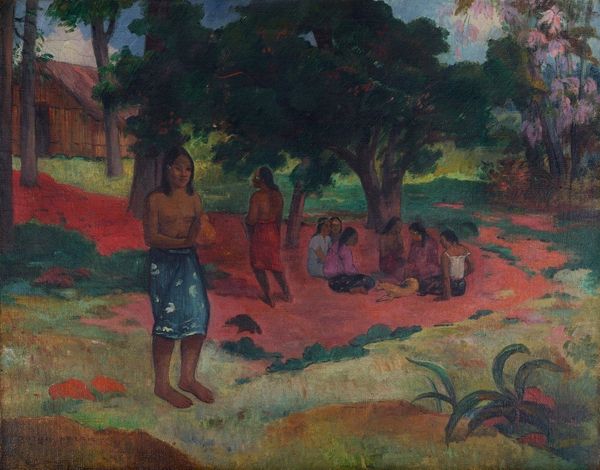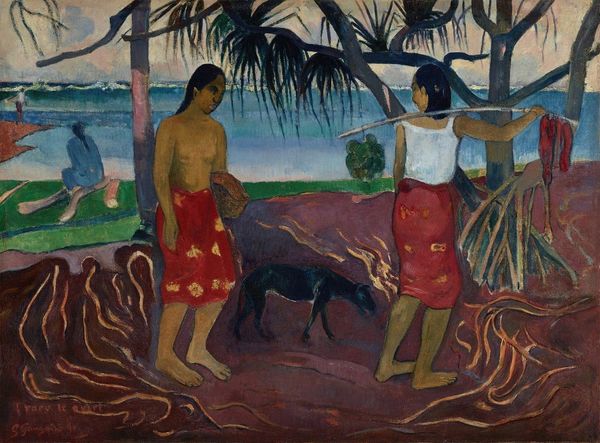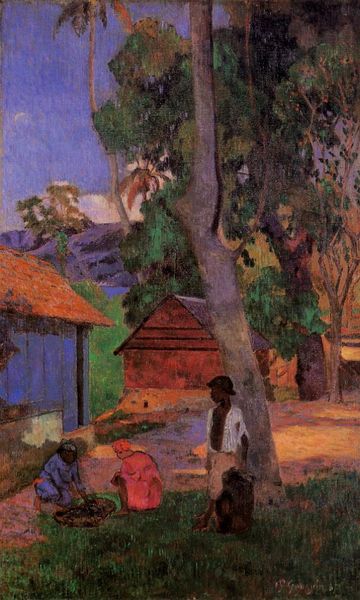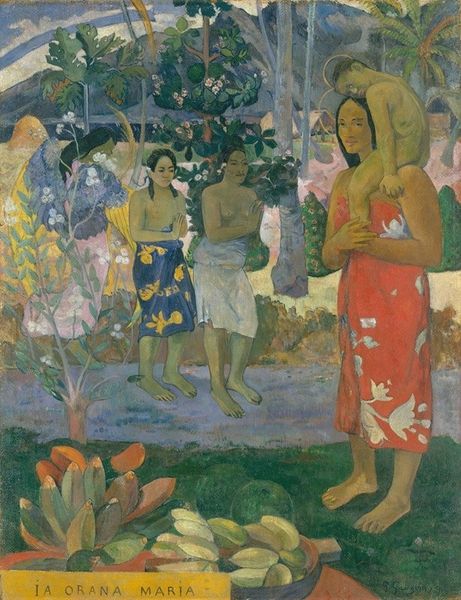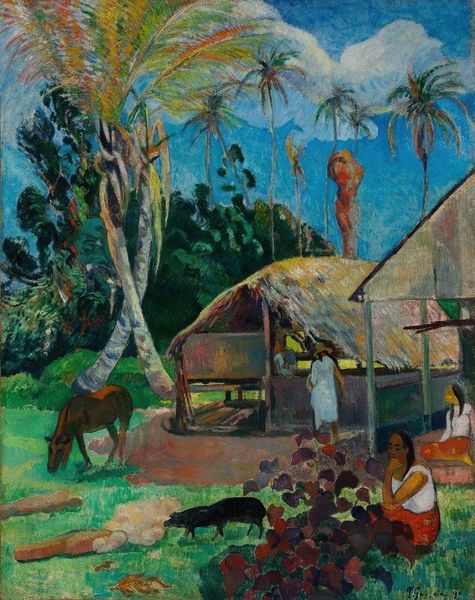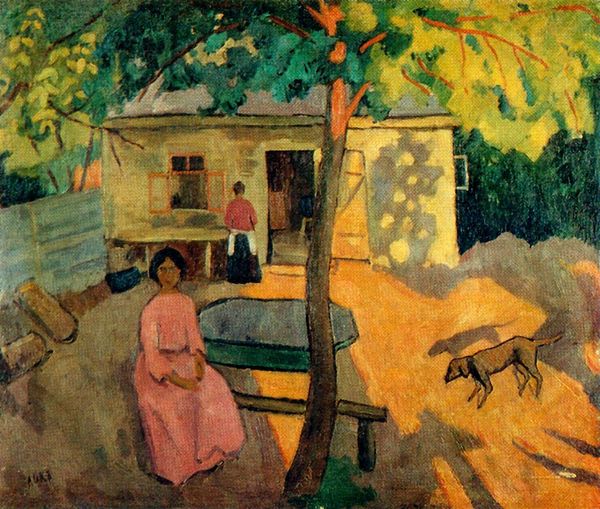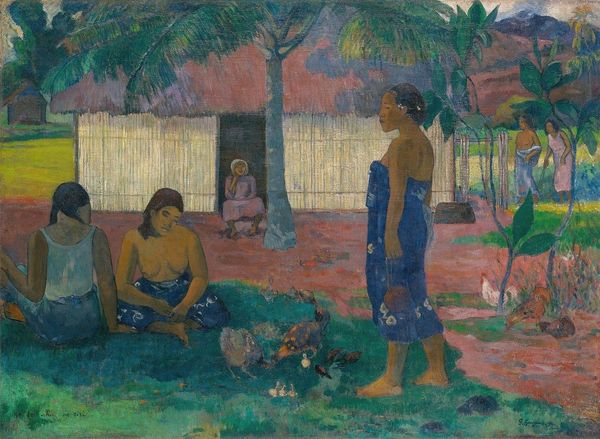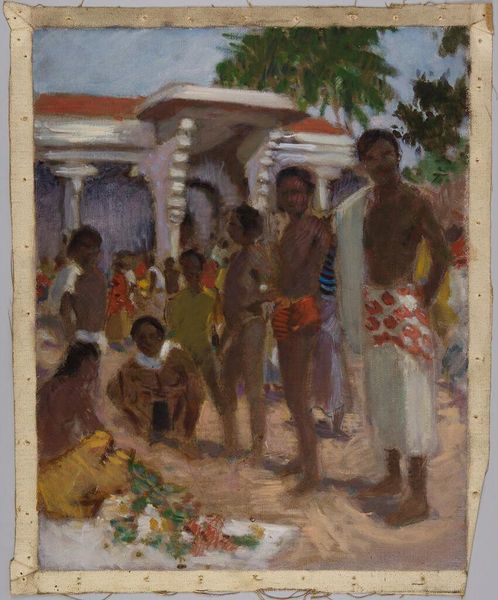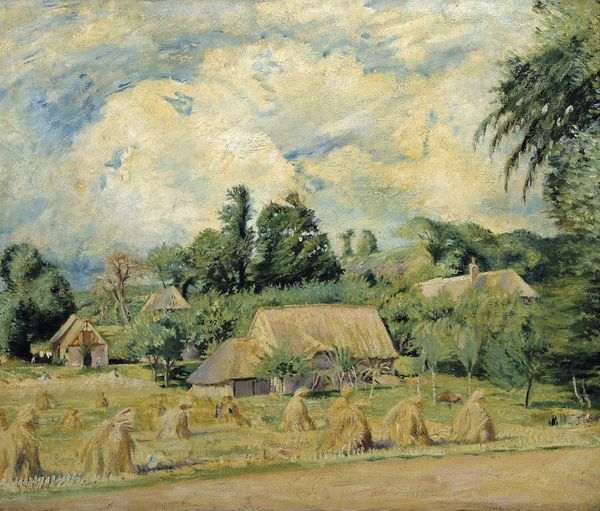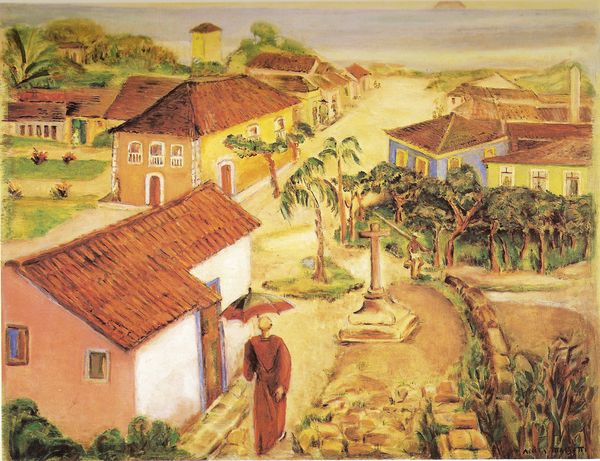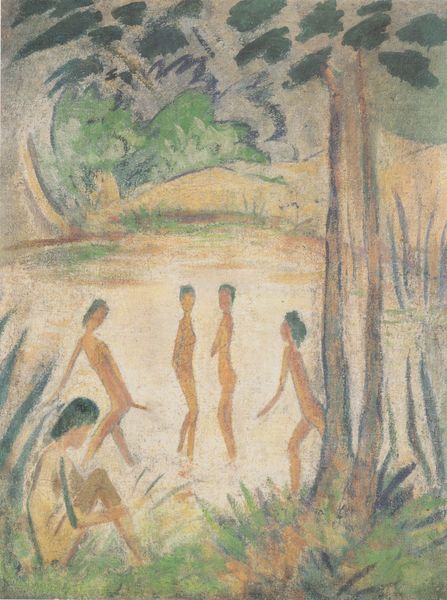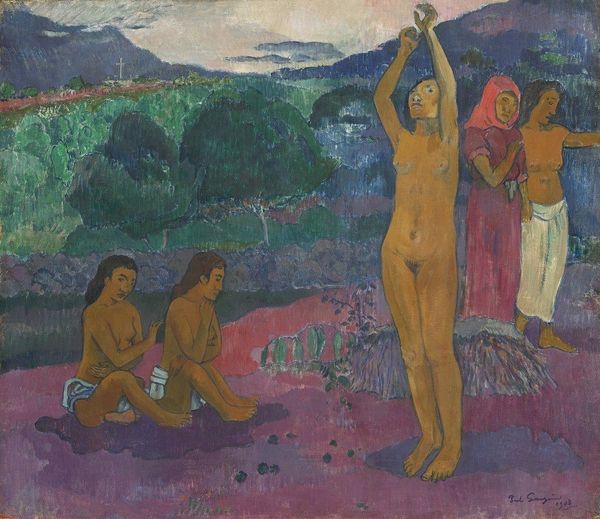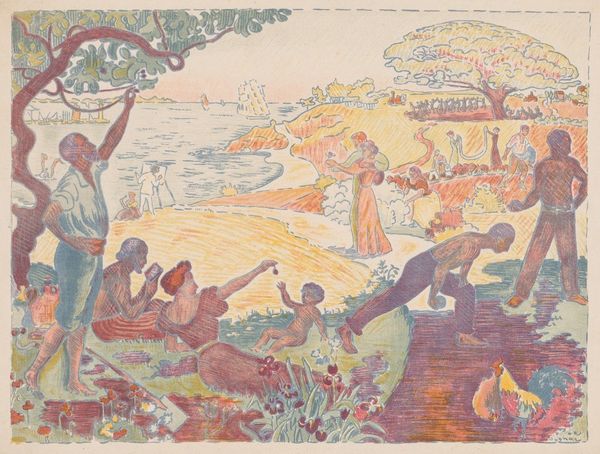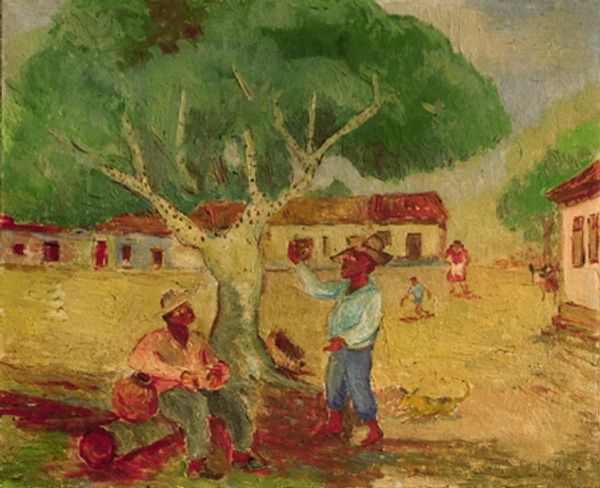
painting, oil-paint
#
painting
#
oil-paint
#
landscape
#
impressionist landscape
#
figuration
#
oil painting
#
orientalism
#
genre-painting
#
post-impressionism
Copyright: Public Domain: Artvee
Paul Gauguin made this painting, "The Large Tree" when he was living in Tahiti. Gauguin was part of a cultural movement called Primitivism in Europe. It was inspired by the colonial encounter, and it romanticized the idea of the "primitive". Here we see the colors and the composition used to create an image that is exotic, mysterious, and sensual. Yet, it also raises difficult questions about cultural appropriation, colonialism, and the artist's role in representing other cultures. The women are eroticized, as if available for the (implied) European male viewer. Gauguin sets up a contrast between the Western world and the Tahitian one, positioning Tahiti as a place of natural beauty and simple pleasures, untouched by Western civilization. For a deeper analysis of the painting, we need to look at the institutions, the economic and political forces in which the art was made. We need to research Gauguin's biography, his letters, his relationship with the Tahitian people, as well as the history of French colonialism in the Pacific. This is how we come to better understand the social conditions that shape artistic production.
Comments
No comments
Be the first to comment and join the conversation on the ultimate creative platform.
